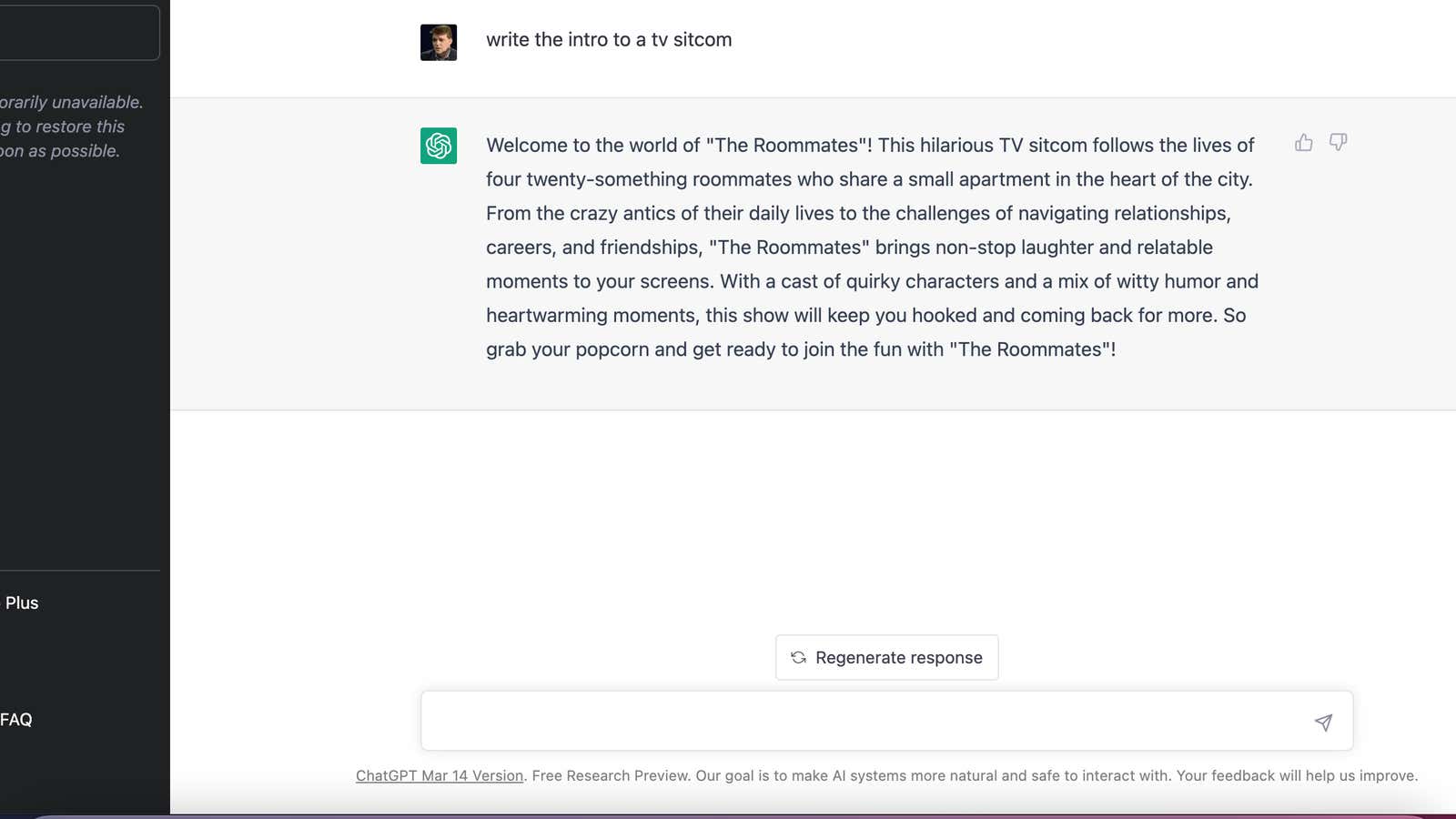The Writers Guild of America West (WGAW), the primary labor union representing Hollywood’s screenwriters, is keeping an open mind when it comes to the use of artificial intelligence.
According to a report in Variety, the guild is proposing allowing the use of ChatGPT, an AI text generator built by the company OpenAI, and similar tools. There’s just one caveat: The guild wants to make sure it won’t hurt screenwriters’ residual checks.
The guild would treat AI technology as an assistive tool for human writers, rather than a standalone author in its own right. So, if writing the next TV sitcom can be automated, it won’t hurt the humans ultimately directing the software in getting credit and compensation for the work.
To credit ChatGPT or not? It’s complicated
The WGAW report strikes at the heart of a central tussle with ChatGPT, Microsoft’s Bing Chat, and Google’s newly released chatbot called Bard. Can we consider these technologies autonomous enough to warrant credit in authorship?
The guild, which did not respond to Quartz’s request for comment, says no, according to Variety. (Disclosure: Quartz’s US-based reporters are represented by the Writers Guild of America East, which is affiliated with WGAW.)
The Writers Guild clarified its stance in a tweet Wednesday (March 22), asserting that its proposal seeks to ensure that “companies can’t use AI to undermine writers’ working standards including compensation, residuals, separated rights and credits.”
You wouldn’t give a spell-checking program credit if you published a novel, but the lines gray with ChatGPT and its peers, as a simple prompt can catalyze a long and complex answer that could mirror the human prompter’s intentions, but also might sidestep them, and go beyond the requests or desires of the human. “It is important to note that AI software does not create anything,” the guild wrote in a tweet. “It generates a regurgitation of what it’s fed.”
The guild proposed that scripts written with the help of AI would still get full “written by” credits, Variety reported, and not be relegated to “screenplay by” credits, which are based on other literary works or third-party source material and command only 75% residuals for writers.
This is a practical question, as some AI-assisted TV writing may already be happening: A recent episode of South Park was reportedly written, in part, by ChatGPT.
But ultimately it runs into a philosophical question of what constitutes derivative work. Large language models (LLMs), which power AI writing services, are trained on large swaths of content already on the internet. Of course, all works are in some way derivative of others, sometimes without full awareness, admission, or credit, but the black-box nature of these AI tools does make it difficult to draw elegant lines between originality and plagiarism—even if an AI-generated script is being heavily edited by humans before anyone ever sees it acted out on screen. “Plagiarism is a feature of the AI process,” the guild wrote in tweet.
This story has been updated to include statements from the Writers Guild of America West.
